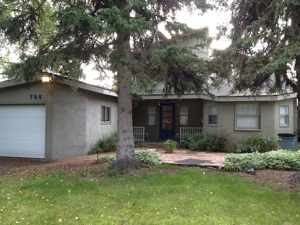A t t o r n e y s A t L a w
726 M Street•Anchorage, AK 99501
Phone: (907) 279-4529
Fax: (907) 279-9223
Email: alaskanlawyers@gmail.com



A t t o r n e y s A t L a w
726 M Street•Anchorage, AK 99501
Phone: (907) 279-4529
Fax: (907) 279-9223
Email: alaskanlawyers@gmail.com

Child Support in Alaska
by Steven Pradell
Unless a court orders otherwise, every child in Alaska has a right to receive support from both biological parents, regardless of whether the parents are separated, divorced or were never married. Child support helps single parent families to afford essentials such as food, clothes, shelter and health care. A court can order parents to pay child support and health insurance to meet the needs of children.
Child support in Alaska is calculated differently depending on whether one parent has the children over 70% of the time. If so, a formula is employed whereby the person responsible to pay support, also called the obligor, must pay a percentage of his or her adjusted annual income as child support to the obligee, the person who receives the support on behalf of the children. Adjusted annual income means a parent's total income from all sources minus mandatory deductions, such as taxes, mandatory retirement deductions and union dues, as well as child support and alimony payments ordered from prior relationships, and work related child care expenses.
According to the formula, if there is one child, the obligor normally must pay 20% of his or her adjusted income, 27% for two children, 33% for three children, and an extra 3% for each additional child.
If neither parent has custody of a child for over 70% of the time, a parent who has custody over 30% of the year has what is called "shared physical custody" for purposes of child support. In such a case, support is calculated differently, using a formula which takes into account the income of both parents and the time each parent spends with the children.
Failure to exercise sufficient physical custody to qualify for the shared physical custody child support deduction is grounds for a parent to ask the court to modify a child support order. It may be wise for clients to keep a journal of actual visitation to determine whether a modification is warranted.
Even if an obligor does not have income, a minimum child support payment of not less than $50.00 is generally required. An obligor can receive a credit for payments made for medical or dental insurance or educational payments made for the children. Child support orders can be modified if the court determines that there has been a significant change of circumstances.
The Child Support Services Division (CSSD) can assist parents in obtaining and enforcing court orders for support. In certain cases, child support and past due support, also called arrearages, can be garnished from the wages of the obligor. Unfortunately, the backlog at CSED can delay the process by months as the office oversees thousands of cases. It is often difficult to reach caseworkers at CSED due to the "kids" line, which only allows messages to be left regarding child support matters. The kids line can be called at (907) 276-3441, or, for in-state toll free calls, (800) 478-3300. These difficulties have caused some parents to turn to attorneys to obtain or modify proper support orders in a timely manner.
Generally, parents in Alaska may not make child support agreements which are contrary to the policies set forth in the child support law, known as Alaska Civil Rule 90.3. The formula set forth in Civil Rule 90.3 can be difficult to apply in unusual cases. Obtaining legal advice about the application of the rule to a specific situation is often necessary. Lawyers can assist parents in completing the necessary documentation of income which a court will use to determine the correct monthly child support payments under Alaska Law.
The court must consider whether the children are eligible for health benefits through insurance or the Indian Health Service before ordering parents to provide health care coverage. The court must then equally divide the cost of insurance between both parents unless there is good cause not to do so. An Obligor parent can decrease child support by his or her portion that is paid for court ordered health insurance. Uncovered health care expenses up to $5,000.00 will normally be equally allocated between the parents, and those in excess of $5,000.00 will be allocated based upon the parties' relative financial circumstances when the expense occur. Within 30 days of the receipt of a bill or other verifying statement, a parent must reimburse the other parent for his or her share of the uncovered expenses.
Parents who have custody of children from other relationships to claim a deduction for the support of these children in calculating their adjusted annual income. Thus, parents who must support prior children who live with them may now pay less support from children from later relationships.
This article is not intended to provide legal advice and should not be relied on for that purpose.